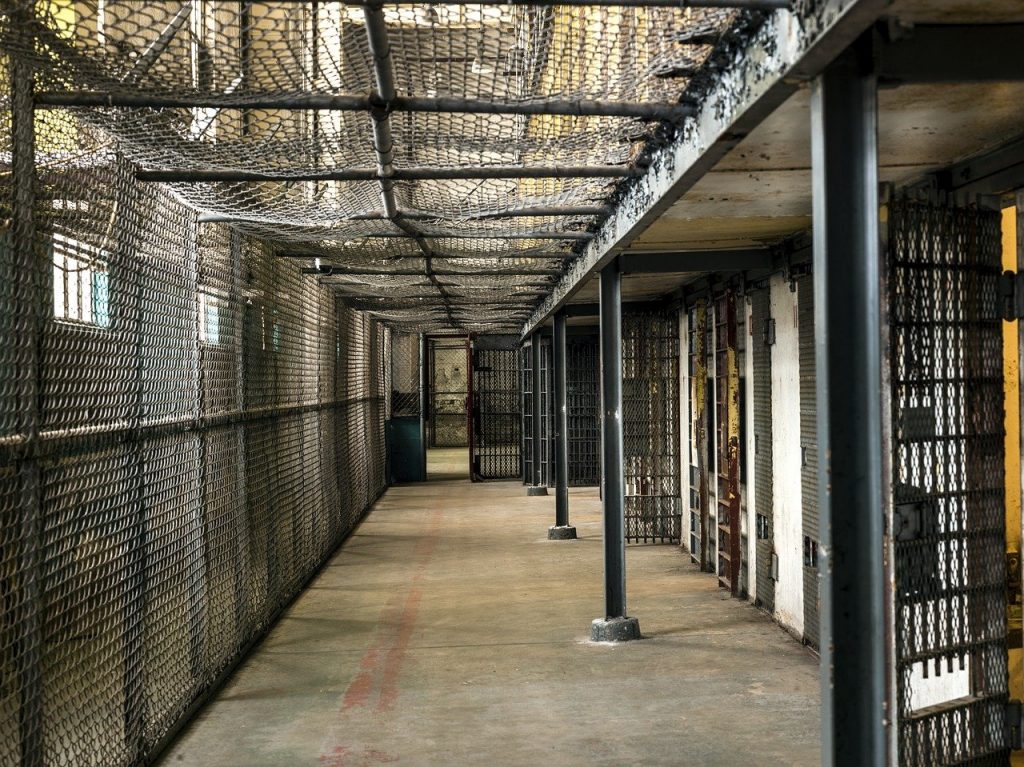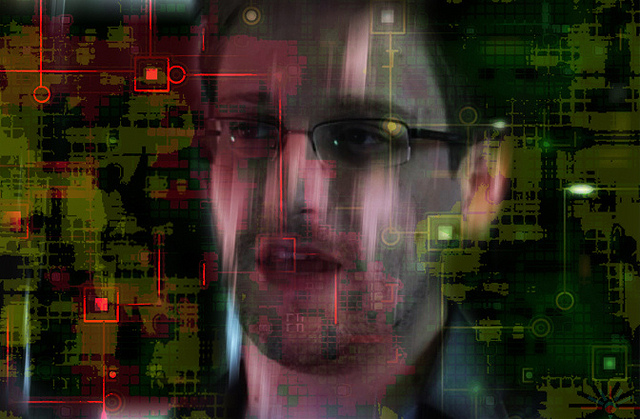Opinion
The Ethics of Spying
Article co-authored with Svetlana Izosimova, Master’s student of International and European Relations at Linkoping University, Sweden.
Whenever we come across the topic of intelligence and security services we instantly think about controversy and secrecy. Most of the time this area of government is considered to be a threat to ethics and morality. We can agree that the issue is very important , so in this paper I will focus exactly on the place ethics has in the intelligence services. But what is ethics? It is the method by which we categorize fundamental values in society and which we ought to follow. Exploring the issue in the perspective of good and bad is helping to highlight problems that should be resolved. Raising the ethical questions help to decide a course of action. Without it actions could appear random and even harmful.
The theme is not only important but interesting too for a few reasons. First of all because a strong debate on the conduct of secret services is helpful in underlining the differences between reality and theory in Political Science. Also, it can reveal the hypocrisy and even worse, corruption and abuse of power in the political systems of the most developed countries. Finally, paying great attention to this can be a gateway to further consequences like the disclosure of a politicized intelligence community and to other debates on the resolution of these problems by the means of reform.
The starting point for the analysis of ethics from the intelligence services’ spectrum is the fact that what we consider to be ethical varies from time to time and from a political system to another. More precisely, those things that could be justified during war time seem to be not acceptable during peace time. In the past, the balance of power put countries in constant fear of one another so survival under anarchy meant more compromises when it came to values like liberty and transparency to the profit of stability and security. Nowadays, most of the Western world’s citizens tend to agree that the international arena is safer due to historical developments. In this situation, there is an opinion that secret services and spying activities should assume only a marginal role in the governance process.
With regard to the political systems, there is a view that the Occident has formed a post-modern system characterized by erosion of sovereignty and shared values. In this part of the world, there would be no need for the traditional international relations instruments that secret services promote and the debate about the ethics of it is very fierce. However, there still exists in the world modern and pre-modern systems that continue to be a threat to the high level of evolution reached by Western democracies. Inside those areas, for a country like say Israel, which is under perpetual state of threat , that debate has no place.
Another focal point of the discussion on ethics and security is the dilemma between the efficiency of some of the methods used by the services like the gathering of information and data in large quantities, targeted assassinations, the use of drones and the potential violations of human rights that they bring about. A development of this leads into another dilemma between serving the people by employing intelligence gathering instruments meant to protect them from terrorist threats and damaging people’s private lives or trust in the government because of secrecy and controversy.
These dilemmas take shape in real life in the case of whistle-blowers. The motivation of people who decide to leak classified information is a legitimate one. In the US, the Bill of Rights and the Constitution provide guarantees to the citizens against potential threats from their own government. What people like Manning, Snowden, Joe Wilson and his wife Valerie have done is to report misconduct of government officials or institutions. Every wistleblowing case is unique but they are all ethical. In Manning’s case, the revelations were about the abuse of power of soldiers who were taking the lives of civilian innocent people. This case shows that high officials are not responsible for the acts of the people under their command.
In Snowden’s case, the NSA came under scrutiny for running a huge mass surveillance program on all US citizens and apparently on foreign and ally governments. The scandal it created shows how the abuse of power and violation of human rights and private lives for the sake of security is no longer tolerated by the public opinion. This could be a clear indicator to the people in power how to shape policies from now on and to remember that it is the people whom they are representing that matter in the end, and not their private agendas.
Finally, Joe Wilson disclosed how he personally debunked for the CIA the myth that Iraq was purchasing Uranium from Niger for the construction of nuclear weapons. This myth had been one of the founding arguments proposed by the Bush administration that justified the Iraq invasion. By destroying this supposition, Wilson clearly showed how the American administration falsely claimed to have a right to invade another sovereign state.
In all three cases, the whistle-blowers had to suffer serious repercussions for their actions, instead of being honored for their courage in putting the truth out there. It has nothing to do with morality necessarily. But it is ethical because they followed the American values as the founding fathers proposed them. The US is after all the land of the free and home of the brave.
As mentioned in the introduction, all these show the distinction between theory and practice and also the malfunctions or breaches in a solid and stable political system like the American one. Such weak points should not have the aim to eliminate the security apparatus itself but to provoke a real debate. This debate should be centered around the question: has the moment arrived to truly reform the system of the intelligence services so that it better responds to the context of globalization, liberal democracy and transparent societies?
References:
Gill and Phytian (2006). Intelligence in an Insecure World. Cambridge: Polity
Herman, Michael (2004). Ethics and Intelligence after September 2001. Intelligence and National Security, Vol. 19 (Summer): 342‐358
Lowenthal, Mark M. (2012). Intelligence: From Secrets to Policy. (5th edition). Thousand Oaks, CA: CQ Press
Lyon, David. (2001). Surveillance Society: Monitoring Everyday Life. Philadelphia, PA: OpenUniversity Press.
China
Nepal Hindu Rashtra: Time to Wrap Up Communism?

Nepal abolished the Constitutional Monarchy in May 2008 and declared itself as a Federal Democratic Republic. There was a new hope in Nepal as it was becoming world’s newest democracy even though it had dissolved the Hindu Rashtra. However, the democracy in Nepal immediately got into the tight grips of leftists and communists backed by China. It has been almost 12 years since monarchy was abolished in Nepal. Interestingly, the Himalayan country has already seen 11 Prime Ministers in this period. Thus, leaving the Nepalese people still yearning for good and stable governance.
Re-establish Hindu Rashtra
As the political instability is growing in Nepal, people are demonstrating concerns about the future of the country. In fact, Nepalese citizens are unhappy with frequent interference by China and India influencing its unstable communist regime. More voices are now growing in support of reinstating the Monarchy and declaring Nepal as world’s only Hindu Rashtra (which by default offers full religious freedom to other religious minorities as per Hindutva concept of Sarva Dharma Sama Bhava – all paths lead to one).
Former Deputy Prime Minister of Nepal, Kamal Thapa said that if political parties do not recognize the seriousness of reinstating the monarchy, then the country will head for a period of darkness. “Recently, we’ve had high-ranking officials from India and China come to Nepal to try and solve problems within the ruling party,” he said. “We cannot let others dictate what we want to do.”
Communist Party All Set to Suppress Protests, By Force
Kamal Thapa has firmly demanded an all party meet to discuss reinstating of monarchy. Throughout the month of December, 2020 Nepal has seen anti communism protests across the country in support of reinstating the monarchy and Hindu Rashtra. Most importantly, the demand has become a nationwide mass people’s movement. So much so that the communist regime had to send a directive to 77 districts in 7 provinces. The directive suggests suppressing the protests by force. Nevertheless, Rashtriya Prajatantra Party and other royalist groups have ignored this threat from the communist regime. Protester groups have pledged to strengthen the protest in the coming weeks.
Nepal: Demonstration held in capital Kathmandu, demanding restoration of monarchy in the country. pic.twitter.com/TFjmKu9U9Z
— ANI (@ANI) December 5, 2020
Role of China – Hope for Communism in Nepal
China’s ambassador to Nepal is known to have very close relationship with Nepalese Communist regime. In fact, She has been super effective in tilting Nepal’s posture towards its ideological partner, China. One of her greatest achievements in 2020 was artificially manufacturing a border conflict between Nepal and India. Consequently, souring relations between the two Hindu majority nations. In addition, she managed to silence Nepal’s communist government after China took one of Nepal’s border villages under its control. However, recent political turmoil in Nepal and a renewed demand for reinstating of Hindu Monarchy is showing that the situation is now out of Chinese hands
Role of India
Year 2020, was not a good year for India and Nepal relations. India was busy in controlling domestic Covid cases. On the other hand, China had launched an invasive campaign into Indian territory. In addition, India is always busy with Pakistan on its western borders. However, the surprise came to India when China was almost successful in creating a new border tension between India and Nepal.
Those who do not know about Indian government should note that the current ruling party in India finds itself ideologically opposite to communism. This further creates differences between the two countries.
Communist party in Nepal has blamed India for supporting the ongoing anti communism protests in Nepal. However, former advisor to Nepal’s PM has suggested there is no proof that India is fueling pro Monarchy, anti communism demand in Nepal.
Nevertheless, There are certain influencers in India who have, in their personal capacity, expressed support for reinstating the Hindu monarchy. Yogi Adityanath, who is the Chief Minister of an Indian state bordering Nepal, said in 2015 that Nepal should declare itself a Hindu Monarchy. Readers should note that in 2015 Yogi Adityanath was not the Chief Minister yet. However, today he is not only popular in south of Nepal, his popularity is growing in Nepal as well.
Will The World See the first Hindu Rashtra?
It is difficult to answer this question at this moment. However, Nepalese communist government could not resolve the political instability and in December 2020 Nepalese government dissolved the parliament. Nepal will see next elections in April – May 2021. Hopefully, the world will see Nepal’s 12th Prime Minister in 13 years or may be a Hindu King? Royalists and protester groups have expressed confidence in winning next elections. We have our eyes on Nepal for updates.
Opinion
America’s Justice System – The Need For Reform

A recent poll by the National Opinion Research Centre revealed that 95% of Americans favour vital criminal justice reforms. This is hardly surprising, given that several people of varying racial, partisan and ideological dispositions have called out the justice system over its many failures throughout the years. Most Americans received the Trump Administration’s First Step Act as a step in the right direction, as about 60% of people approved the criminal justice reform bill according to a 2018 poll. However, many people still believe the justice system’s approach to crime is ineffective and needs dire change, and these are some reasons why.
Prison population and funding concerns
Research conducted revealed America has about 2.3 million prisoners, making the US the country with the highest incarceration rate globally. Experts estimate that the country’s prison population has grown by a whopping 340% over the past three decades; new prisoner admissions into jails are higher than prisoner release numbers. The cost of maintaining the nation’s prisons at taxpayers’ expense has inspired a lot of backlash and calls for budget cuts. According to research, slashed correction spending was the preferred option by most states to balance their budgets and redirect spending to other areas.
Minimum mandatory sentences
Minimum mandatory sentences are statutes that force judges to give defendants convicted of a crime the minimum prison sentence. Mandatory sentences rob judges of the traditional way of considering the defendant’s character and the unique circumstances surrounding offences. Even when represented by criminal defense attorneys with many years’ experience, defendants often succumb to prosecutors’ pressure to plead guilty or face more severe charges with higher mandatory sentences. The guilty plea bargain consequently resolves about 95% of both federal and state court cases. Research also shows that about half of inmates in federal prisons are doing time for drug offences- causing overpopulation in the prison system.
Growing number of people killed by the police
An estimated 1000 civilians are killed by police officers annually in the US. The frequency of police brutality cases over the years requires immediate reform to the American justice system. Data suggests that the incidence of fatal police shootings is higher among African-Americans than any other ethnicity, inspiring movements like the ‘Black Lives Matter’ campaign to press on with protests for significant police etiquette reforms towards coloured minorities. The police force faces incessant accusations of racial profiling, indiscriminate use of power, and poor discretion, which has led a reported 58% of Americans to think policing needs major reforms through measures like better-trained officers, and wearing body cameras.
Evolving public opinion on crime
Research released by the Sentencing Project and The Justice Policy Institute reveals that more people in conservative states are embracing preventive, rehabilitative, and alternative sentencing options for non-violent offenders. Most Americans now view the prevention of crime as the most vital function of the justice system, as 77% of Americans think that focusing more on character education and after-school programs would be cost-effective by reducing the number of people going to jail. Almost two-thirds of Americans also believe in the need for lighter sentences with more useful, reformative programs in prisons that will benefit inmates upon release. Therefore, support for harsh penalties that harden criminals and make them a more significant menace when reintroduced into society has dwindled.
Opinion
The History Question: Is It Better to Remember or to Forget?

Years ago, a philosopher by the name of George Santayana said a phrase that fuels many debates to this day. His original saying is “those who cannot remember the past are condemned to repeat it”, although, many sources now present it as variations of “those who cannot learn from history are doomed to repeat it”. The latter definitely has more substance to it in the light of the ongoing debate about how much history we should be learning and how.
Is It Better to Remember or Forget About the Past?
On one hand, Santayana was right. Learning about the past is essential in order for people to progress. One also shouldn’t overlook the importance of remembrance and paying respects to the dead, both those who pushed the progress forward and those who have fallen victims to major tragedies that could and should have been averted.
The main argument in favor of learning about the past is that its knowledge is necessary for preventing the same thing happening in the future. Having it one can see the signs and stop the tragedy before it gains momentum.
That’s sound in theory, but the reality is always different. For example, today people are surely forgetting, and the much-critiqued education system is only partially at fault here. Even the greatest of tragedies weren’t spared this fate. It’s a proven fact that about two-thirds of millennials today don’t know about the Holocaust, and this number is surely greater for generations that follow them. In the school history course, the subject of one of the greatest disasters in history is barely touched, if touched at all. And outside of a history classroom, one can only see small, but terrifying, glimpses of it at the Holocaust Museum and other museums that rarely attract many visitors. And now we are witnessing a rise of antisemitic crime.
Are these two facts related? Does the lack of awareness about the horrors done in the name of Aryan supremacy contribute to the fact that right-winged extremists seem to be gaining popularity again?
It does, but by how much? That is the question that no one can truly answer.
And what about other genocides? The Holocaust had the highest death toll, but it was far from the only genocide in history. And quite a few of those happened after World War 2 and before the memory of the atrocities against the Jews began to fade. This means that while forgetting history is a factor, it’s not the deciding factor in its repeats.
But what is that thing responsible for the reenactment of past mistakes and tragedies?
Learning. This is the important thing that is most often overlooked when citing Santayana’s famous saying. It’s not enough to learn about the past and know the facts of things that happened. It’s important to learn from those facts and put in place protections that will prevent them from happening again. And this is something that humanity, as a whole, has yet to succeed in doing.
Dwelling in the Past Can Be Just As Bad
One also shouldn’t forget that there is such a thing as “too much history”. The Bosnian War and genocide that happened there in the 1990s is a vivid example of how the past can be exploited by political powers. Used as a part of propaganda, which fueled the war, history can become a weapon in the hands of those who want to use it for their own goals.
And this is what humans have been doing since the dawn of time. There is always someone who will use any means necessary to achieve whatever it is they wish. This results in wars and genocides, and hundreds of smaller but no less devastating tragedies.
Therefore, the problem isn’t whether people should be learning history but human nature itself. Perhaps, teaching this can help fix this fundamental flaw and truly stop the worst of the past from repeating.
-

 Business11 months ago
Business11 months agoHow To Future-Proof Your Business With The Right Tools
-

 Travel10 months ago
Travel10 months agoTravelling from San Antonio to Guadalajara
-

 Travel7 months ago
Travel7 months agoTravel wellness tips for a healthier and more enjoyable journey
-

 Europe5 months ago
Europe5 months agoRecent Books by Boaventura de Sousa Santos: Law, Colonialism, and the Future of Europe






